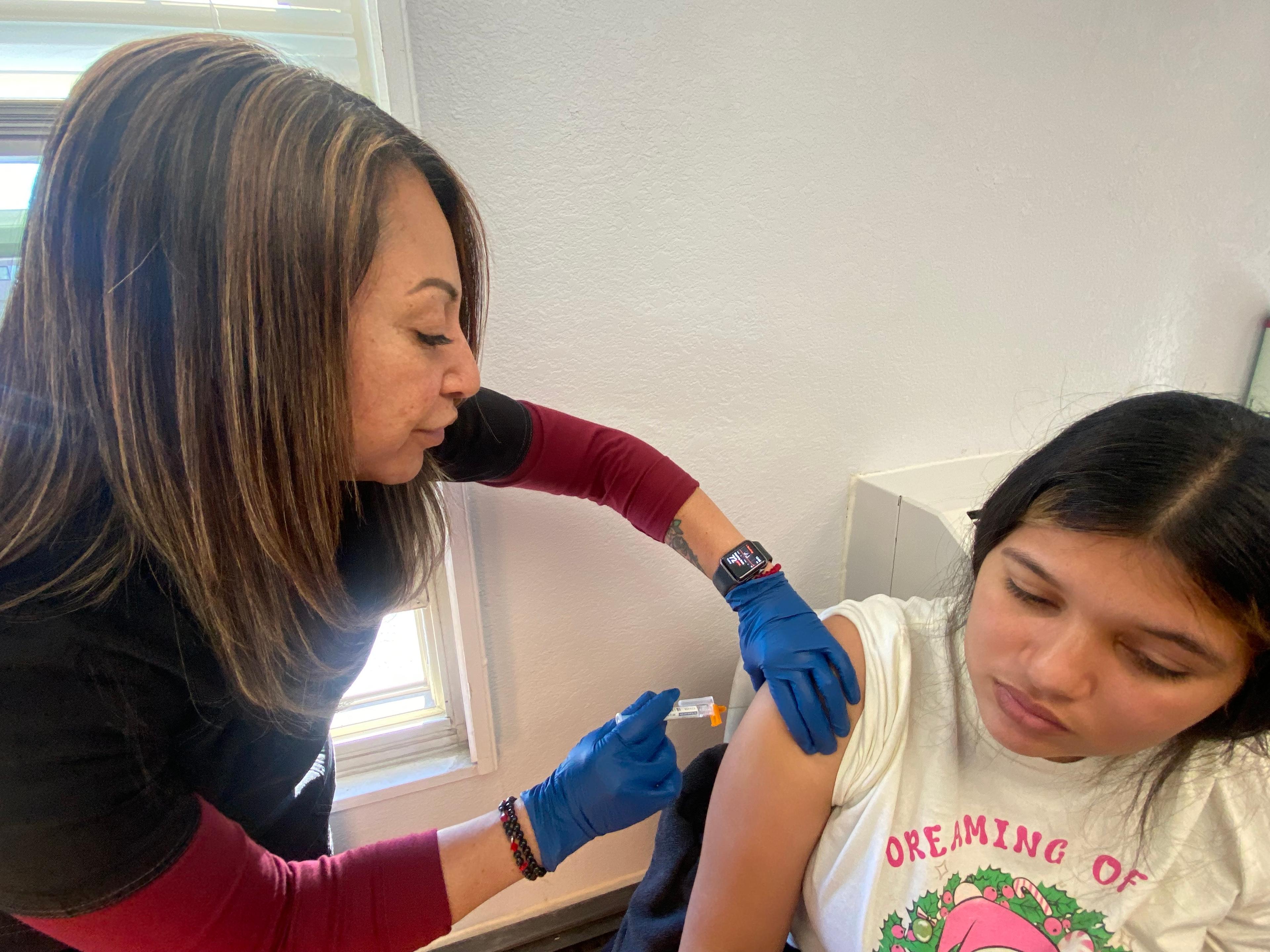
Achoo! Cough! Sniff!
Many Coloradans are hearing those sounds, if not experiencing them firsthand or in their homes, as the 2025 winter virus season is hitting hard.
Hospitals reported 257 hospitalizations for influenza, 77 for COVID-19 and 176 for RSV on Wednesday, according to the state’s viral respiratory diseases dashboard. The numbers dropped considerably from the previous week for flu and COVID-19 but were up 18 for RSV. The dashboard, which was developed following the creation of its COVID-19 website, is updated every week on Wednesdays.
The positivity rate, the rate of positive tests, is nearly 20 percent for flu, a high level, and nearly 9 percent for RSV. All three viruses are showing up in wastewater samples taken from multiple sites by utilities.
“Definitely, quite a few people are hospitalized now that we were not seeing in December,” said Dr. Michelle Barron, senior medical director of infection prevention and control for UCHealth. “Nobody remembers, but this is actually a typical flu year, and I don't know that we think of anything as typical anymore, but usually around the holidays is when we'll start to see slight upticks. And then usually right after the holidays is when we'll start to really see numbers.”
She said across UCHealth’s system, one of the state’s largest, it had 69 patients hospitalized with flu, 43 with coronavirus, 17 with RSV, as well as some for norovirus.
“Predictably unpredictable,” is how Barron described this season to date, noting the predictable part is driven by the shared air of seasonal get-togethers. “What do people do over the holidays? They gather.”
Dr. Rachel Herlihy, the state epidemiologist, agreed. “We've had a really cold snap recently, which we know can exacerbate illness in people. So I think there's a variety of reasons that our hospitals could be busy right now.”
She said she thought virus levels in Colorado could be high for several weeks, though the various indicators on the state dashboard presented a mixed bag. Mostly downward trends for flu, COVID-19 looking like it’s in decline, with the positivity rate (the rate of positive tests) up for RSV.
“I'm not convinced we've peaked with RSV. COVID does look like we are steadily declining right now. So I think there's some mixed patterns. We're still seeing high levels of viral respiratory illness out there,” Herlihy said. “So far, we haven't been hearing about capacity concerns from our hospital partners, so that's certainly good news. We do know that for a variety of reasons at this time of year can be a challenging year for our hospitals."
Herlihy and Barron’s advice? This will sound familiar: Get vaccinated if you haven’t already.
“I like to talk about the fact that when we reach the peak of flu season, that's really only the halfway mark. There's still lots of influenza out there,” Herlihy said. “We know that COVID remains unpredictable and we're likely to see additional waves of COVID as we move further into the spring and summer, given that we've had a pretty mild season so far.”
“Not too late to get your shots. So you're always going to hear me talk about immunizations,” Barron said. “We're not over the season, don't think that just because we're seeing them now means we're done.”
There’s also an RSV vaccine for those 70 and older, or if you’re younger and have certain health conditions.
Also, doctors see a lot of bacterial pneumonia this time of year, she said, and there are new recommendations from the CDC for pneumonia vaccines.
According to the state’s dashboard, 14 percent of Coloradans have gotten this year’s COVID-19 immunization, including more than a third of those older than 65.
For flu immunization, the numbers are a bit higher; nearly 26 percent of Colorado residents have gotten that shot. Almost half of those 65 and older have received it.
Twenty-two percent of Colorado residents have gotten an RSV immunization, including almost 30 percent of those 75 and older.
Both doctors recommend staying home, and away from work or school, if you’re sick, so you don’t give it to others. Also wearing a mask prevents the spread of a virus, and hand sanitizing does as well, as does wiping down horizontal surfaces at home.
“If you suspect noroviruses in your household, lots of bleach. Bleach is your friend, bleach will kill all the respiratory viruses and will kill norovirus,” Barron said. “And it doesn't have to be crazy. Just wipe down surfaces, what we call horizontal surfaces. So your tables, like the sink, certainly handles.”
Also, hand towels can carry germs, so clean them regularly.









